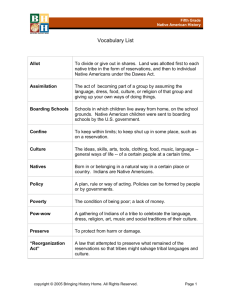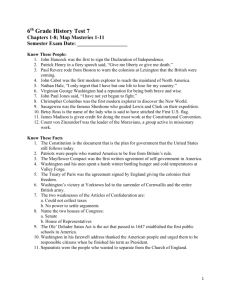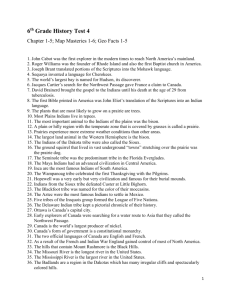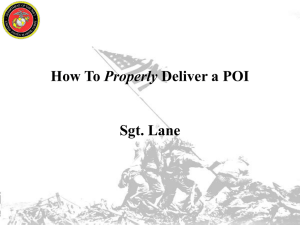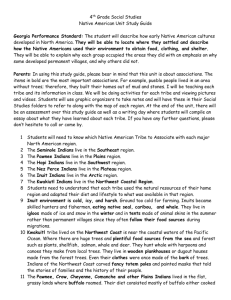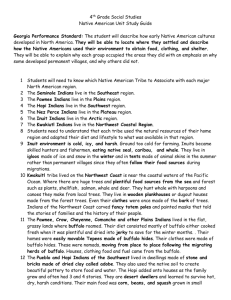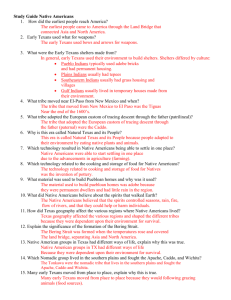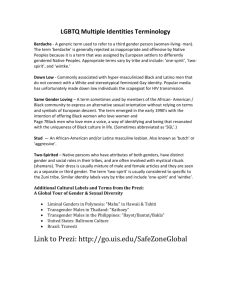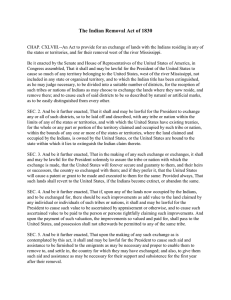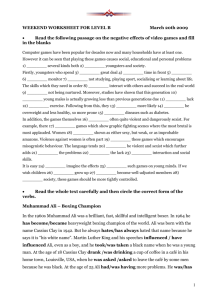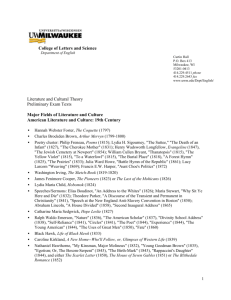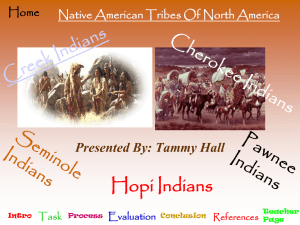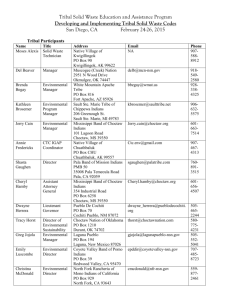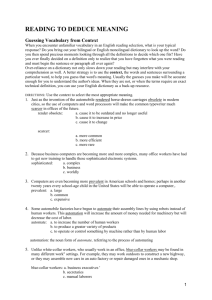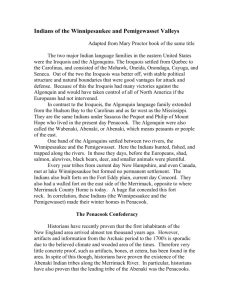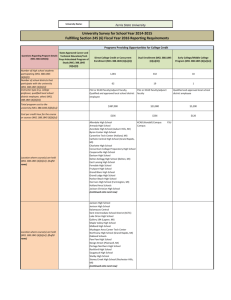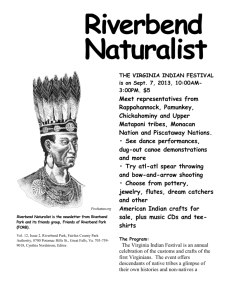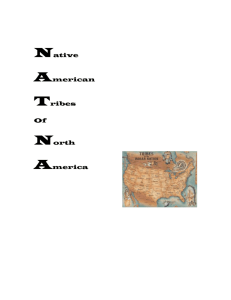Source: James Knox Polk: Inaugural Address
advertisement
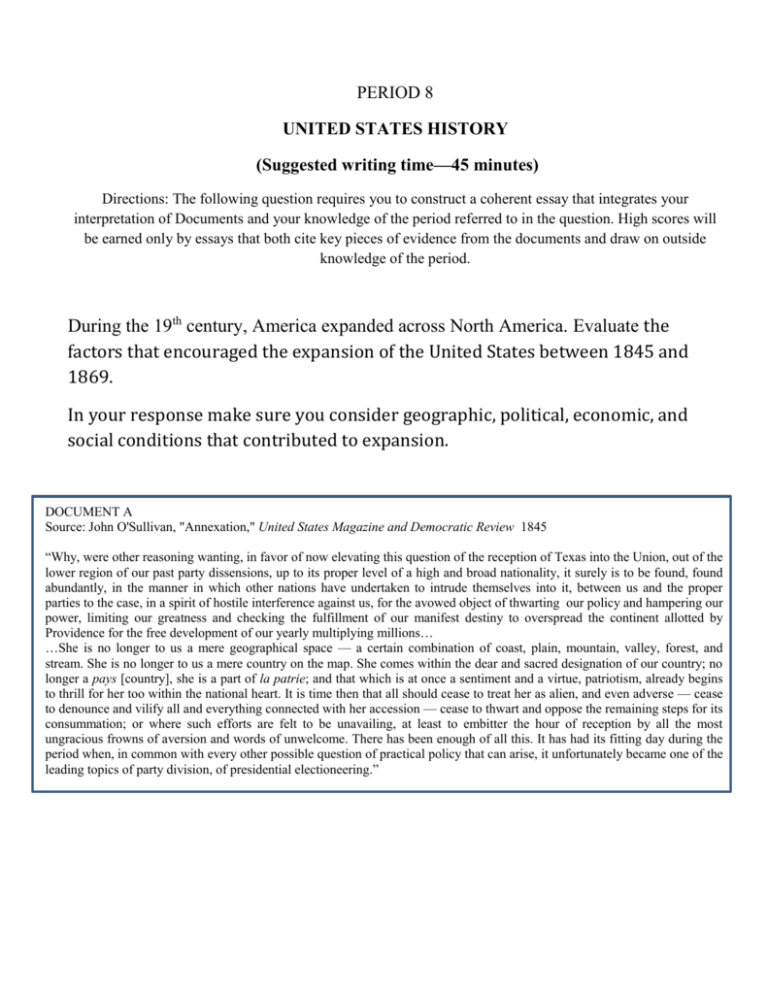
PERIOD 8 UNITED STATES HISTORY (Suggested writing time—45 minutes) Directions: The following question requires you to construct a coherent essay that integrates your interpretation of Documents and your knowledge of the period referred to in the question. High scores will be earned only by essays that both cite key pieces of evidence from the documents and draw on outside knowledge of the period. During the 19th century, America expanded across North America. Evaluate the factors that encouraged the expansion of the United States between 1845 and 1869. In your response make sure you consider geographic, political, economic, and social conditions that contributed to expansion. DOCUMENT A Source: John O'Sullivan, "Annexation," United States Magazine and Democratic Review 1845 “Why, were other reasoning wanting, in favor of now elevating this question of the reception of Texas into the Union, out of the lower region of our past party dissensions, up to its proper level of a high and broad nationality, it surely is to be found, found abundantly, in the manner in which other nations have undertaken to intrude themselves into it, between us and the proper parties to the case, in a spirit of hostile interference against us, for the avowed object of thwarting our policy and hampering our power, limiting our greatness and checking the fulfillment of our manifest destiny to overspread the continent allotted by Providence for the free development of our yearly multiplying millions… …She is no longer to us a mere geographical space — a certain combination of coast, plain, mountain, valley, forest, and stream. She is no longer to us a mere country on the map. She comes within the dear and sacred designation of our country; no longer a pays [country], she is a part of la patrie; and that which is at once a sentiment and a virtue, patriotism, already begins to thrill for her too within the national heart. It is time then that all should cease to treat her as alien, and even adverse — cease to denounce and vilify all and everything connected with her accession — cease to thwart and oppose the remaining steps for its consummation; or where such efforts are felt to be unavailing, at least to embitter the hour of reception by all the most ungracious frowns of aversion and words of unwelcome. There has been enough of all this. It has had its fitting day during the period when, in common with every other possible question of practical policy that can arise, it unfortunately became one of the leading topics of party division, of presidential electioneering.” DOCUMENT B Source: James Knox Polk: Inaugural Address - Tuesday, March 4, 1845 “The Republic of Texas has made known her desire to come into our Union, to form a part of our Confederacy and enjoy with us the blessings of liberty secured and guaranteed by our Constitution. Texas was once a part of our country—was unwisely ceded away to a foreign power—is now independent, and possesses an undoubted right to dispose of a part or the whole of her territory and to merge her sovereignty as a separate and independent state in ours. I congratulate my country that by an act of the late Congress of the United States the assent of this Government has been given to the reunion, and it only remains for the two countries to agree upon the terms to consummate an object so important to both.” “In the earlier stages of our national existence the opinion prevailed with some that our system of confederated States could not operate successfully over an extended territory, and serious objections have at different times been made to the enlargement of our boundaries. These objections were earnestly urged when we acquired Louisiana. Experience has shown that they were not well founded. The title of numerous Indian tribes to vast tracts of country has been extinguished; new States have been admitted into the Union; new Territories have been created and our jurisdiction and laws extended over them. As our population has expanded, the Union has been cemented and strengthened. As our boundaries have been enlarged and our agricultural population has been spread over a large surface, our federative system has acquired additional strength and security.” DOCUMENT C Source:This is the official account of a visit paid to the gold region in July 1848 by Colonel Richard Barnes Mason, who had been appointed to the military command in California, and wrote his report for the adjutant-general at Washington. It is dated from headquarters at Monterey, August 17, 1848. The discovery of these vast deposits of gold has entirely changed the character of Upper California. Its people, before engaged in cultivating their small patches of ground, and guarding their herds of cattle and horses, have all gone to the mines, or are on their way thither. Labourers of every trade have left their work-benches, and tradesmen their shops; sailors desert their ships as fast as they arrive on the coast; and several vessels have gone to sea with hardly enough hands to spread a sail. Two or three are now at anchor in San Francisco, with no crew on board. Many desertions, too, have taken place from the garrisons within the influence of these mines; twenty-six soldiers have deserted from the post of Sonoma, twenty-four from that of San Francisco, and twenty-four from Monterey. I have no hesitation now in saying, that there is more gold in the country drained by the Sacramento and San Joaquin Rivers than will pay the cost of the present war with Mexico a hundred times over. No capital is required to obtain this gold, as the labouring man wants nothing but his pick and shovel and tin pan, with which to dig and wash the gravel, and many frequently pick gold out of the crevices of rocks with their knives, in pieces of from one to six ounces. DOCUMENT D Source: Frederick Douglas, Speech to Rochester, 1852 For the present it is enough to affirm the equal manhood of the Negro race. Is it not astonishing that, while we are plowing, planting, and reaping, using all kinds of mechanical tools, erecting houses, constructing bridges, building ships, working in metals of brass, iron, copper, silver, and gold; that while we are reading, writing, and ciphering, acting as clerks, merchants, and secretaries, having among us lawyers, doctors, ministers, poets, authors, editors, orators, and teachers; that we are engaged in all the enterprises common to other men -- digging gold in California, capturing the whale in the Pacific, feeding sheep and cattle on the hillside… DOCUMENT E Source: Kansas Nebraska Act, 1854 “When admitted as a State or States, the said Territory, or any portion of the same, shall be received into the Union with or without slavery, as their constitution may prescribe at the time of their admission.” DOCUMENT F DOCUMENT G Source: Ostend Manifesto, 1854. [B]y every law, human and divine, we shall be justified in wresting [Cuba] from Spain if we possess the power; and this upon the very same principle that would justify an individual in tearing down the burning house of his neighbor if there were no other means of preventing the flames from destroying his own home. Under such circumstances we ought neither to count the cost nor regard the odds which Spain might enlist against us. DOCUMENT H Source: Rocky Mountain News, 1864 Among the killed were all the Cheyenne chiefs, Black Kettle, White Antelope, Little Robe, Left Hand, Knock Knee, One Eye, and another, name unknown. Not a single prominent man of the tribe remains, and the tribe itself is almost annihilated. The Arapahoes probably suffered but little. It has been reported that the chief Left Hand, of that tribe, was killed, but Colonel Chivington is of the opinion that he was not. Among the stock captured were a number of government horses and mules, including the twenty or thirty stolen from the command of Lieutenant Chase at Jimmy's camp last summer. The Indian camp was well supplied with defensive works. For half a mile along the creek there was an almost continuous chain of rifle-pits, and another similar line of works crowned the adjacent bluff. Pits had been dug at all the salient points for miles. After the battle twenty-tree dead Indians were taken from one of these pits and twenty-seven from another. DOCUMENT I Source: June 22, 1867 Harpers Weekly Operations on the Smoky Hill and Arkansas routes have ceased for the present, and the attention of General Sherman had been devoted to the Platte River route. At Omaha, on June 8, he issued general orders stating that the Union Pacific Railroad shall be so well guarded in the future that no Indians will dare to interfere with it. All passengers and freight must be forwarded to the end of the tracks, and from there will be guarded by sufficient escorts specially provided for that purpose. He expressed himself as sanguine that he will clear the Platte Valley of Indians within two weeks. He had also, with the concurrence of Secretary Stanton, agreed to allow Governor Hunt, of Colorado, to equip five hundred volunteers for Indian service.
